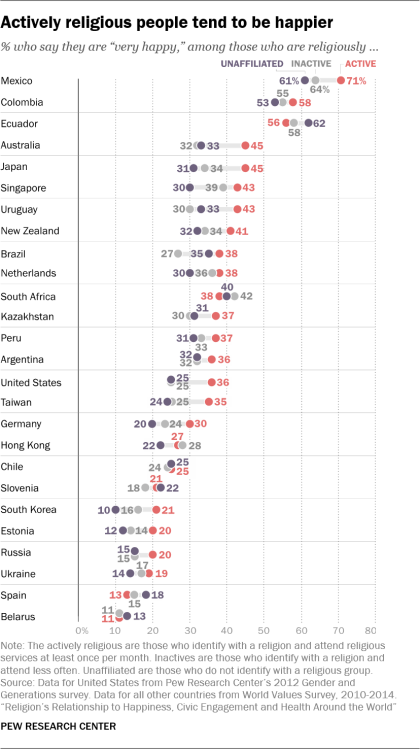Some folks among us make the claim that humans would be better off without religion. I've never put much stock in such a notion for a variety of reasons. Among those is that when it comes to human happiness, there's little doubt that being actively religious is associated with greater happiness. This trend holds true not just in the United States, but worldwide (with a few exceptions):
These findings were posted last week and include a broader look at the relationship of religion to happiness, civic engagement, and health. There's definitely more to check out in the study if you'd like some reading material. An important caveat for these data, though (from the article):
Thoughts?
These findings were posted last week and include a broader look at the relationship of religion to happiness, civic engagement, and health. There's definitely more to check out in the study if you'd like some reading material. An important caveat for these data, though (from the article):
"The exact nature of the connections between religious participation, happiness, civic engagement and health remains unclear and needs further study. While the data presented in this report indicate that there are links between religious activity and certain measures of well-being in many countries, the numbers do not prove that going to religious services is directly responsible for improving people’s lives. Rather, it could be that certain kinds of people tend to be active in multiple types of activities (secular as well as religious), many of which may provide physical or psychological benefits."
Thoughts?

